a first for me – an all-stalls bathroom in use by all genders. felt a little uncomfortable, honestly, after a lifetime of strict separation. yet I lived to insta the tale ?
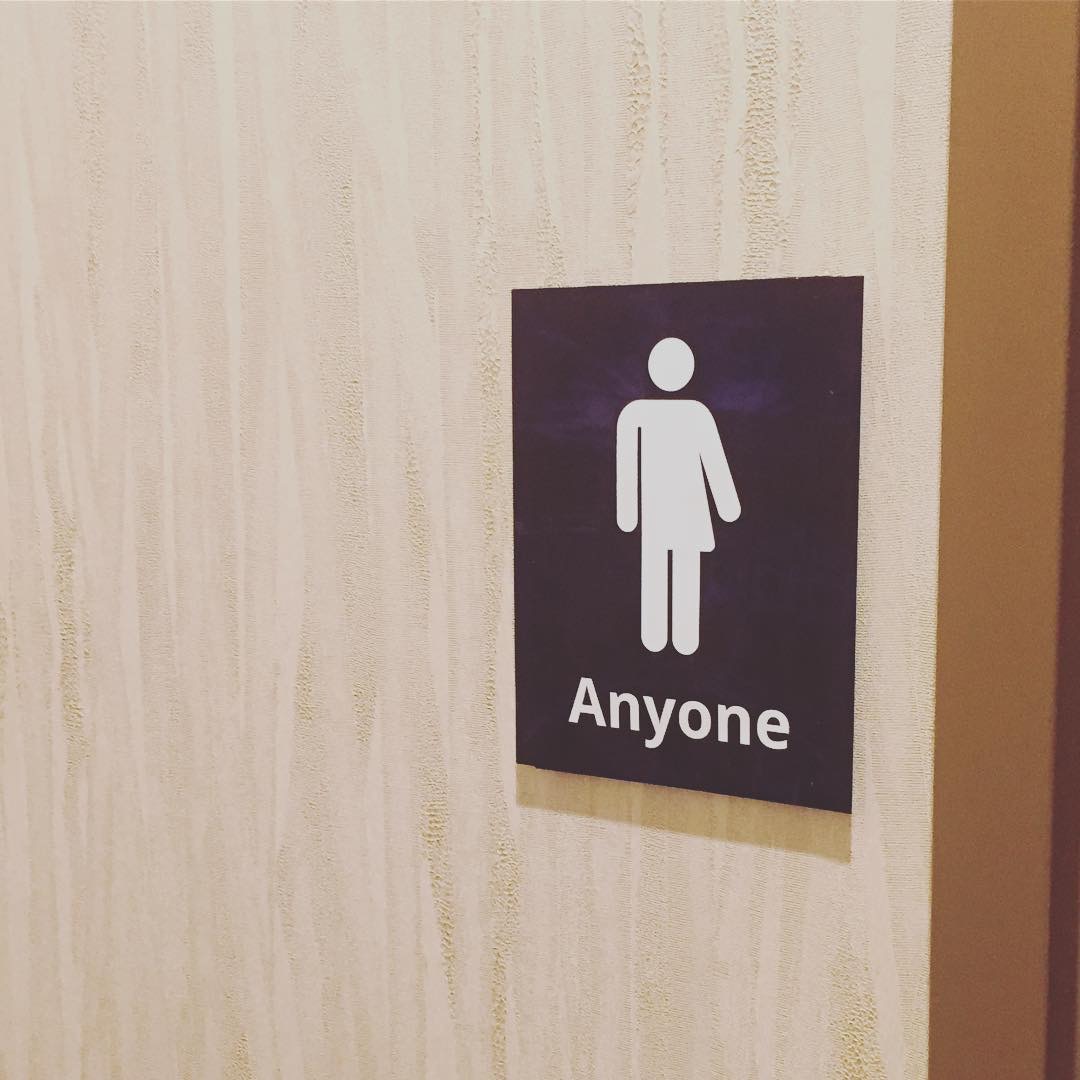

a first for me – an all-stalls bathroom in use by all genders. felt a little uncomfortable, honestly, after a lifetime of strict separation. yet I lived to insta the tale ?

ok, “Troy”, but do you have any… bargains?

Since the election, I’ve been really torn about what to think of Trump’s crazy tweets. The baseless Hamilton cast attacks, the New York Times fight, and now the deranged claims of millions of “illegal” votes. On the one hand, it seems like an attempt to distract from more substantive issues: the Trump U lawsuit settlement, his giant pile of conflicts of interest, his string of terrible cabinet appointments, etc. But on the other hand, though the substance of his attacks seem petty and trivial, they also represent, I believe, grave threats themselves.
For the person heading to the White House to accuse some Broadway performers show for being “very rude”, and then to call the show itself “highly overrated”, that is petty and trivial, certainly. But it’s also an attempt at a horrible chilling effect. It says: if you cross me in the slightest, I’ll use my bully pulpit to directly attack your character, even your livelihood.
So, which is it? Or, put another way: how should the media cover those statements? Ignore them as ridiculousness that they shouldn’t be distracted by? Or take him to task for real, actual bad behavior?
I think this article from ThinkProgress nails what’s really going on here (though it didn’t make me optimistic about how to fight it): Trump’s lies have a purpose. They are an assault on democracy. Some key quotes, but as always, I hope you read the whole thing.
If Bush and Rove constructed a fantasy world with a clear internal logic, Trump has built something more like an endless bad dream. In his political universe, facts are unstable and ephemeral; events follow one after the other with no clear causal linkage; and danger is everywhere, although its source seems to change at random. Whereas President Bush offered America the illusion of morality clarity, President-elect Trump offers an ever-shifting phantasmagoria of sense impressions and unreliable information, barely held together by a fog of anxiety and bewilderment. Think Kafka more than Lord of the Rings.
Thinking of it this way, even the “good” news out of his camp contributes to the confusion. Changing his mind about the wall, about Obamacare, about trying to jail Clinton, it all helps muddy the waters. The more he can make people say, “wait, what??” – whether they’re relieved or outraged at what he said – the better.
When fake news becomes omnipresent, all news becomes suspect. Everything starts to look like a lie.
There’s been a lot of discussion, and hopefully there will be more, about fake news. It’s a real thing (no irony intended), with a variety of issues, angles, and enablers. So fake news sites that are engineered to go viral and drive clicks and all of that, that’s one thing, but the key here is that first as a candidate, now as President-elect, and soon as President, everything Trump says is automatically “news” (e.g., his ranting about millions of illegal votes).
When political actors can’t agree on basic facts and procedures, compromise and rule-bound argumentation are basically impossible; politics reverts back to its natural state as a raw power struggle in which the weak are dominated by the strong.
That’s where Donald Trump’s lies are taking us. By attacking the very notion of shared reality, the president-elect is making normal democratic politics impossible. When the truth is little more than an arbitrary personal decision, there is no common ground to be reached and no incentive to look for it.
Lastly, this is the kicker, for me. This is a grave undermining of our entire society. Thanks, Trump.
The first thing that’s been normalized for me since November 8: how much the words “normalized” and “normalization” are being used. Here are a few links, with key quotes from each, that struck me as worth pointing out, worth remembering, worth coming back to in the months and years to come.
First, from Liel Leibovitz in Tablet Magazine: What to Do About Trump? The Same Thing My Grandfather Did in 1930s Vienna.
Refuse to accept what’s going on as the new normal. Not now, not ever. In the months and years to come, decisions will be made that may strike you as perfectly sound, appointments announced that are inspired, and policies enacted you may even like. Friends and pundits will reach out to you and, invoking nuance, urge you to admit that there’s really nothing to fear, that things are more complex, that nothing is ever black or white. It’s a perfectly sound argument, of course, but it’s also dead wrong: This isn’t about policy or appointments or even about outcomes.
This isn’t a political contest—it’s a moral crisis. When an inexperienced, thin-skinned demagogue rides into office by explaining away immensely complex problems while arguing that our national glory demands we strip millions of their dignity or their rights, our only duty is to resist by whatever means permitted us by law. The demagogue may boost the economy, sign beneficial treaties, and mend our ailing institutions, but his success can never be ours. Our greatness, to use a tired but true phrase, depends on our goodness, and to succeed, we must demand that our commander in chief come as close as is possible to reflecting the light of that goodness.
Next, from a series of nine tweets by Iranian-American Roja Bandari that was Storified with the title: What It’s Like To Live Under a Religious Dictatorship:
Some things about what it was like to live in Iran under a religious dictatorship: 1) It felt normal. People had jobs, friends, school, etc
2) A minority bears most of the pain: most vulnerable and those who defend them, plus any journalists and intellectuals who are out of line.
6) Everyone else moves on with their lives, jobs, families, problems, vacations, etc. Humans adapt quickly.
7) There is no ominous music playing in background in dictatorships. So if you in the US are waiting for a sign, there will be none.
8) It becomes harder and the risk gets higher the longer one waits before realizing something is not right. Because more people adapt.
Following that, the rousing final episode of 2016 from Last Week Tonight with John Oliver, President-Elect Trump. It’s the fun mix of outrage and hilarity you’ll expect if you’ve watched Oliver before, a little heavier on the outrage this time. Worth watching in full, if you haven’t yet (and maybe if you have).
The point is, if we don’t get actively involved to at least mitigate Trump’s damage, things will not be okay.
And yes, the sun will rise each day. But the continuing rotation of the earth should not be your baseline expectation of American society. And I just need to ask you one more thing. It is going to be too easy for things to start feeling normal, especially if you are someone who is not directly impacted by his actions. So keep reminding yourself: this is not normal. Write it on a post-it note and stick it on your refrigerator. Hire a skywriter once a month. Tattoo it on your ass. Because a Klan-backed misogynist internet troll is going to be delivering the next State of the Union address. And that is not normal, it is fucked up.
In lieu of a post-it or skywriting or a tattoo, I made: a GIF. You may see this from time to time, if you follow me on Twitter.

Lastly, a thing I heard some time ago on the excellent 99% Invisible podcast. It’s an unusual episode, “Wild Ones Live”, featuring a live performance of a music-backed book reading about animals and wildlife by Jon Mooallem, author of Wild Ones. The whole thing is great, and worth listening to, but this part is what came to mind with respect to talk about “normalization”:
It happens every summer. Small turtles, called diamondback terrapins, skitter out of the water around JFK airport in New York, and they start moving west. They’re heading for a patch of sand, where they like to lay their eggs, and they have to cross over one of the airport’s runways to get there, runway 4-L. Sometimes, there’s so many turtles on the move at once, that the control tower has to delay flights. Now the press loves doing stories about how funny this is, how a fleet of giant airplanes can be held up by just a few tiny turtles.
But hold that picture in your mind, and think about the Caribbean Sea in 1492. There were almost a billion sea turtles living in it back then. Columbus’ men, anchored in the Caribbean, wrote about being kept awake at night by the thwacking of so many turtle shells against the sides of their ship. Notice how that scene is the exact opposite of the scene at JFK: it’s not a fleet of giant airplanes being held up by a few tiny turtles, it’s a giant fleet of turtles, bombarding just a few, relatively tiny ships.
So, I wrote this book about people and wild animals in America, and it only really started because I wanted to show my daughter endangered species in the wild before they disappeared. Like a lot of people, I think, I felt this pang. I knew that all around us, beautiful parts of the world are expiring, and I also knew that people in the future, they might not even notice. For them, a world without whales, or wilderness, might feel normal. I wanted to counteract that forgetting that’s bound to take hold over time.
This forgetting has a name. Scientists call it “shifting baseline syndrome”. It means that all of us accept the version of the world we inherit as “normal”. Over the years we watch forests get logged, or animals disappear, but when the next generation comes along, they accept that depleted version of nature as their normal. It’s hard to “zoom out”, really feel the changes that are stacking up across the generations. I can’t even imagine what an ocean filled with a billion sea turtles must feel like. Last winter, I was in Hawaii, and I saw three sea turtles, and I flipped the f**k out. I felt like I was in Eden.
From the perspective of human impact on the natural world, as he’s talking about, shifting baselines are often moving in a bad, destructive direction. In societal terms, those shifting baselines can more often be good. It used to be the normal baseline that people could own other people, and that people of one gender couldn’t vote, and that people of one ancestry had to go to different schools and drink from different water fountains. But what Trump’s campaign has done, and what his presidency seems on track to continue doing, is throw our modern norms and baselines around like a leaf in the wind, causing a lot of damage and hurting a lot of people along the way.
Another parallel I see between the current political reality and the baselines of the natural world that Mooallem is talking about above, are with the sheer speed that things are happening. People that argue against environmental issues sometimes say things like, “well extinction isn’t new, species have always gone extinct, where are the dinosaurs and wooly mammoths?”, or “oh the global temperature always varies up and down, the Ice Age, ever heard of it?”. But a huge difference is in how fast those things happen; extinctions and global climate changes in the modern era are happening wildly faster than they ever have before (see this xkcd comic for a good visualization of this).
Similarly, the norms of how the U.S. government is run have indeed changed over time. But never this much, this violently, or in a way that concentrates power this much. Keeping track of the previous baseline – and the one before that, and so on – was already proving to be a problem before Nov. 8, and it’s going to be a challenge, probably on a daily basis, for the next four years. Hang in there, and don’t forget. And apologies again for how often I’m going to use that GIF.

I followed a link to this post from Twitter, and found it to be really profound: After the Election: Wrestling the Angel of Fear. As usual, I recommend you read all of it, as I have a half-dozen times just today. I normally wouldn’t quote this much, but there’s a lot that’s good here. I hope(!) the author won’t mind.
To give up hope is not to accept things as they are. I am appalled by the president-elect and the renewed license for intimidation and violence that has shown itself since the election. But I also must accept that things are as they are. As I drove down the road years ago, screaming at [President Bush], I was having a moment of non-acceptance, propelled by fear that turned quickly to despair. I was insisting that George Bush be different from the man he had always shown himself to be, and I was furious to be living in a country that would make him president. And I responded as if personally betrayed, as if it wasn’t fair, an outrageous violation of some law by which such things are not supposed to happen.
It makes sense to feel overwhelmed in the face of [Trump’s win]. We are only human, after all, and we have not been prepared. Instead, we have, for generations, been encouraged to see ourselves as passive consumers rather than active citizens, our minds distracted and pacified and colonized to accept the status quo or to pin ourselves to the hope for something better.
We have been trained to be easily overwhelmed and immobilized, dis-couraged with little awareness of our responsibility or power.
We have been desensitized to the pain of others, and hypersensitized to our own, taught to see pain not as a message, a wake-up call, but as something noxious to be escaped, silenced, anaesthetized.
But we cannot afford to be overwhelmed or swallowed by despair. Like the parent of a desperately ill child, we don’t get to disappear into not knowing what to do. For a day or two, perhaps, but then we have to step in and give it up and reacquaint ourselves with the courage of faith.
At first I thought the usage “dis-couraged” was a typo, or misplaced hyphenation. But on subsequent readings I decided it was purposeful, with a meaning like, “removed courage”.
[It] occurs to me that being able to choose between hope and despair comes of the freedom to sit on the sidelines and watch from the relative safety of being white. And when things go badly and we sink into despair, hope comes riding to the rescue, promising to lift our hearts, that things will work out, somehow, someday, against the odds. Whether we do anything or not.
Hope is better suited to feeling than action, for it does not so much galvanize as soothe, a refuge from despair, that does not hold us to account.
Faith, on the other hand, comes of having to wrestle the angel of fear, whose power faith would harness into action. Faith is what turns a crowd of individuals into a march and then a movement. Where hope is passive and content, faith has an agenda and makes demands.
down to one of my last imports from Colorado. this bottle was $10 but it would be a bargain at twice the price ????
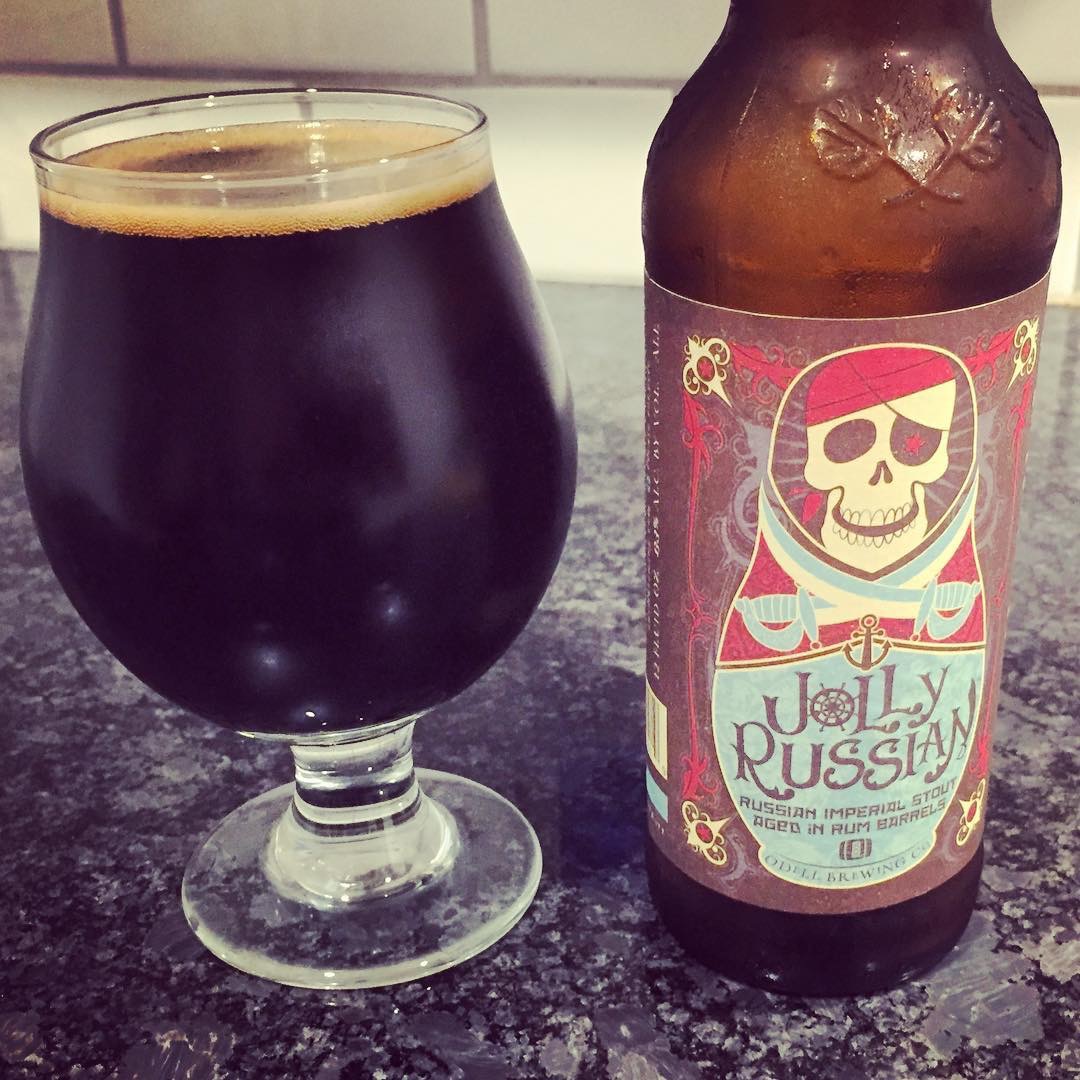
As we settle in to this new reality, this world where Donald Trump is the President-elect, I’ve been reading and thinking more about the echo chambers, or “bubbles”, that I mentioned in my previous post.
One article was from The Guardian: Bursting the Facebook bubble: we asked voters on the left and right to swap feeds. I recommend you read the whole thing, but here are some key quotes:
“Twelve people have shared a story with me about the Hillary Clinton bus dumping human waste into the sewer system,” said [conservative] Trent Loos, a farmer and radio host from central Nebraska. “I never see positive stuff about Hillary Clinton. I didn’t know that existed.”
Meanwhile, I don’t even know what that bus-sewer story was, that he saw a dozen times.
“It’s like reading a book by a fool,” said [liberal] Pines. “It’s hard to read something you know is a lie.”
Another liberal, Nikki Moungo from St Louis county, Missouri, went a step further: “It’s like being locked into a room full of those suffering from paranoid delusions,” she said.
…Andra Constantin, a conservative project manager from Westchester County, New York, was frustrated by “this whole big brainwashing push to save the world from the horrible climate change”.
This is maybe a little unfair to juxtapose that third statement with the first ones, but it makes a point. I found it tempting at first to think of the conservative-liberal dichotomy they’ve set up here in terms similar to the “both sides” school of non-partisan journalism (an approach I believe is unhelpful in many cases). That is, in the same way journalists try to present “both sides” of news stories, lending at least some credence to each, one might think that getting an equal amount of information from both of these bubbles would be ideal.
But here’s the thing, which the climate-change denier cited there underscores: there aren’t always two valid sides to present. Human-caused climate change is an absolutely certain thing. It just is. 2016 is expected to be the hottest on record, breaking the record set by 2015, and before that, 2014. She’s just wrong. (And her making accusations of brainwashing is pretty rich).
But it wasn’t only the liberals who found the experience painful.
“I’m seeing a lot more hate from the liberal side,” said Constantin. “It’s all about how much of a horrible, fascist, racist, misogynist Trump is.”
“Honestly, I hated it,” said Janalee Tobias, a longtime conservative activist and member of Mormons for Trump from South Jordan, Utah. “I’m seeing a psychiatrist trying to get over the shock and the hate from the left,” she joked. “I thought this would be easier for me to handle, because I’m considered pretty open minded.”
This blew my mind. It reminded me of some of the things that Trump said about Clinton in the debates, which I found puzzling even then: in the second, he said something about her “having so much hate in her heart”, and in the third he made the infamous “such a nasty woman” comment. And for all the criticism of Clinton that one could make – which I’ll say, I believe a lot of is overblown, at best – but I just would never have imagined that a characterization of her as mean, hateful, or nasty would resonate like that.
There was the “basket of deplorables” comment, of course, but she apologized for that, and honestly, I didn’t feel it was far off the mark. (I know, I know: bubble. My point is, it didn’t strike me at the time as mean or hateful.) But as the first woman said, the liberal attacks on Trump were for being “a horrible, fascist, racist, misogynist”. Which brings me to this Vox article, Research says there are ways to reduce racial bias. Calling people racist isn’t one of them. This is also worth reading in its entirety (especially the Virginia-Gustavo conversation, which is beautiful), but here are the key parts I want to point out:
Most Americans, white people included, want to think that they’re not capable of racism — particularly after the civil rights movement, overt racism is widely viewed as unacceptable in American society. Yet racism, obviously, still exists. And when some white people are confronted with that reality, whether it’s accusations of racism against them personally or more broadly, they immediately become very defensive — even hostile.
And, earlier in the article:
“Telling people they’re racist, sexist, and xenophobic is going to get you exactly nowhere,” said Alana Conner, executive director of Stanford University’s Social Psychological Answers to Real-World Questions Center. “It’s such a threatening message. One of the things we know from social psychology is when people feel threatened, they can’t change, they can’t listen.”
That’s crucial information to understand. But I think this is another example where the both-sides-are-valid approach doesn’t really hold up. There might be some fine lines and complex aspects in some discussions of what’s racist and what’s not. But I don’t think there’s a good argument that Donald Trump’s presidential campaign is one of those discussions. He was endorsed by the KKK, and didn’t renounce it. A core part of his platform includes halting immigration of as well as deporting Muslims. Perhaps most damningly (so far): there’s been a spike in spontaneous hate crimes since the election, many explicitly linked to Trump’s win. (Note: that’s not the “liberal” mainstream media reporting that; that’s the SPLC, a nonprofit founded 45 years ago specifically to protect civil rights and fight hate crimes.)
But although I believe the campaign included an alarming (one might even say deplorable) amount of racist rhetoric that clearly resonated with some Trump voters, the lesson I take from the Vox article is that having an understanding of how those supporters perceived that rhetoric, and the criticism of it, is also important.
In my previous post I said, “Maybe I should be stronger and more open to diverse voices, but I’m not and I don’t.” What I’m realizing is, that isn’t good enough. I think we should hear more from them, even though what I’ve written here is still pretty dismissive, sounding like I still think “they” are “wrong”.
Because actually, you know what? That’s about right, after all. This upcoming presidential term is different. If Jeb Bush were the President-elect, then this would be a more typical conservative vs. liberal situation. It would be what a lot of people are saying: the pendulum swung the other way this time, it’s the Republicans’ turn for a while, the course of history is a winding one, yadda yadda yadda. I won’t go into all the details here, but I do believe that the changes caused by Trump’s campaign and his upcoming presidency – even at their mildest and most normal – will be as significant as they are harmful.
In the meantime, I’m going to try to venture out of my bubble a little more. I’m going to start with this “thoughtful conservatives” Twitter list, and see how it goes. I’m already finding it kind of hard to stand, but maybe that’s a sign of how important this is.
Postscript: the evening after I wrote this, Vice-president-elect Mike Pence attended a showing of the musical Hamilton. Reports say that some in the crowd booed him, a response that was popularly supported in my Twitter timeline. Then I saw several audience-filmed videos of the cast’s statement, addressing Mike Pence literally from the stage at the end of the show. From a wire report:
“We, sir, we are the diverse America who are alarmed and anxious that your new administration will not protect us, our planet, our children, our parents or defend us and uphold our inalienable rights, sir,” Dixon said.
“But we truly hope this show has inspired you to uphold our American values and work on behalf of all of us. All of us.”
Hamilton, Dixon told Pence, was performed by “a diverse group of men, women of different colors, creeds and orientations.”
The response to this incident from President-elect Trump on Twitter is jaw-dropping. One tweet: The Theater must always be a safe and special place.The cast of Hamilton was very rude last night to a very good man, Mike Pence. Apologize!”
And another: “Our wonderful future V.P. Mike Pence was harassed last night at the theater by the cast of Hamilton, cameras blazing.This should not happen!”
First, that the cast were rude is simply untrue. It may have been an unusual move, and it certainly put Pence on the spot. But it was a totally polite and respectful way to acknowledge his attendance, and to make a public statement of concerns and values that are shared by many. Pence had already been booed by the audience before this, so if anything, the cast’s statement was a mature, polite way to settle things down, to quell the audience’s rudeness.
Second, what kind of leadership is this? The man who would be President petulantly demanding apologies on social media? This was in no way “harassment”, these were totally respectful and sane statements, made by performing artists using their platform to amplify their voices, but “this should not happen”? It simply boggles the mind (and chills the blood).
And lastly, back to my topic: what does this do for the bubbles inhabited by Trump supporters? It’s pure red meat, whipping up antagonism, reinforcing negative stereotypes, and beating the drum of confrontation and adversarial feeling. And it’s coming – intentionally, I believe – from the very top of their bubble.
??

an opener good enough to get me to buy their EP ?

back of the crowd

Some recent stories in the news:
A parallel between the story told by those links and the world of soccer occurred to me today: Trump’s silence is like the ref who “lets the players play”. Early in a game – the higher the stakes of the game, the more crucial this is – players will experimentally make some rough plays, some tougher tackles than they might otherwise make. They’re testing the waters, trying to find out how much they can get a way with. And if the ref “lets them play”, the result is usually a game that gets out of hand: play is ugly, injuries are more likely, the ref later may have to give a flurry of yellow and red cards to try to regain control.
Leave aside the question of what politician ever in history wouldn’t at least make some kind of feel-good statement – less than a week after the election! – about healing our divides, unification, etc. My point is that President-elect Trump, in failing to do literally the least he could do in the face of these terrible acts, will have the same damaging effect as those lenient refs.
Only I worry in this case, the message being sent isn’t accidental.
So I watch the sun come up
and I watch the sun go down
And the horizon hovering
like a missing piece
that can never be found
And as the seasons lie in wait
like a secret you already know
Winter is behind us now,
it is ahead of us, also

Waiting


black shape
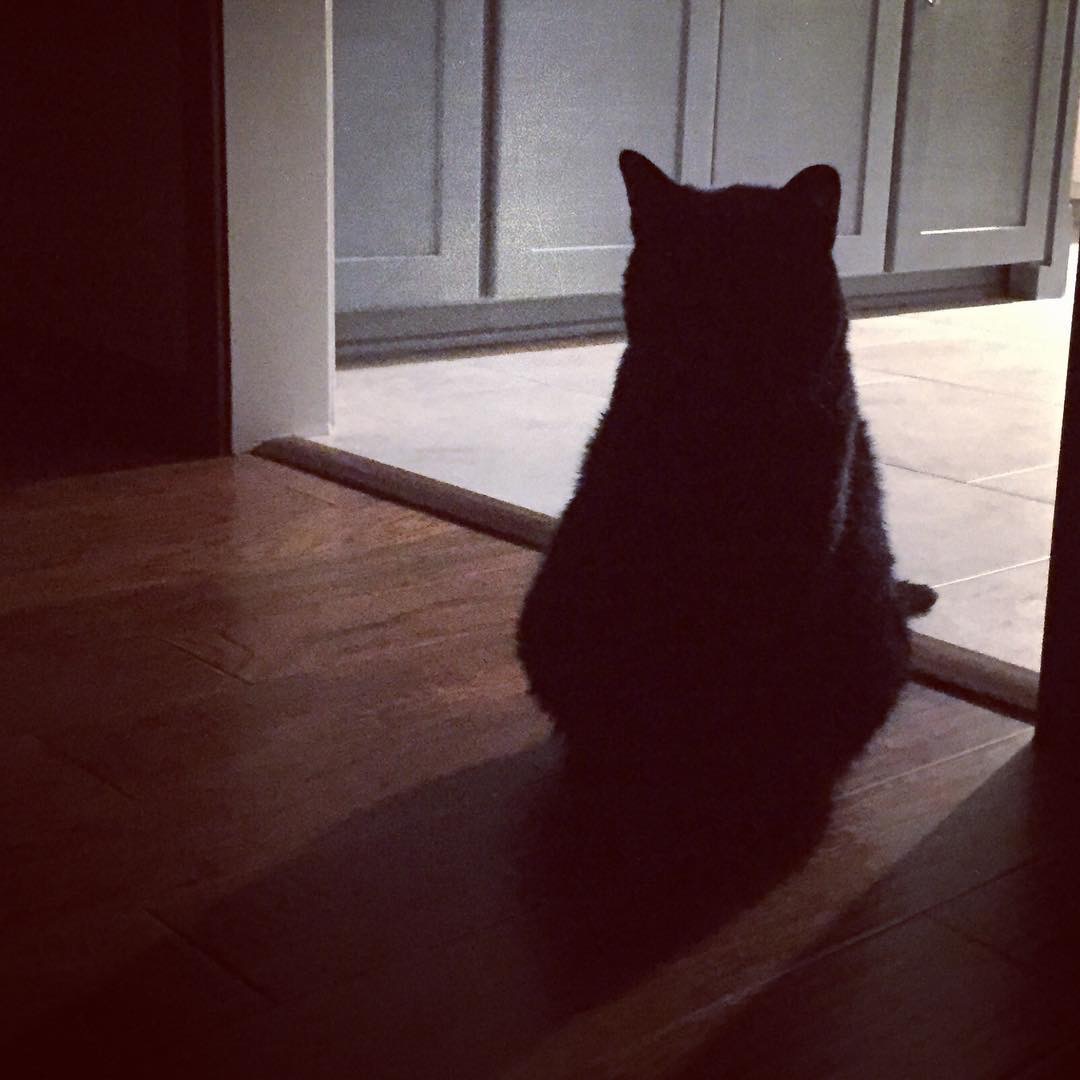
I’m in ruins this morning, the day after the election. Though I’m writing this as if someone will read it, I know my traffic numbers (or, number; it’s 0). But I put it here because, I don’t know, why not. Narcissistic fantasy, I guess.
Firstly, I’m heartbroken, and feel utterly betrayed. Four days ago, I tweeted that Clinton would win in a landslide. Last night we escaped some of the early election-night drama by going to a movie, something we rarely do at all, and never on a random weeknight (we saw Dr. Strange, it was good; honestly I could have done without the rotating cityscape chase scene, but it was fun). I was perfectly confident we’d come out to find Clinton with a solid lead, possibly victory already declared (with luck in North Carolina and Florida).
Instead we had texts from my daughter, watching live results with her friends at college, freaking out because “Trump is sweeping”. I rolled my eyes, reassuring my wife on the way home: come on, relax, it just looks like early leads because of the electoral college and timezones and a bunch of little red states, it’ll be fine, Clinton would still win.
Spoiler, she didn’t win.
So one thought I wrestled with all night–in periods of dozing, waking, stomach pain, and general feelings of panic–was whether I was so upset because my “team” “lost”. That maybe it had a lot to do with embarrassment, personal embarrassment, that I’d talked big, been overconfident, and then wound up being just plain wrong. (I can’t stand being wrong, I have to say, that can hardly be overstated.)
But what I’m coming to realize is that although a lot of this pain is from embarrassment, it’s not my embarrassment. It’s embarrassment on behalf of the 57 million Americans who thought so little of the many, many important values that Trump violated during this campaign, that they voted for him anyway. And that just absolutely boggles my mind. I asked a coworker yesterday, back when I was still feeling great and confident, already feeling some relief that this nightmare season was almost over, what it would be like to have to actually meet someone who voted for Trump. I honest-to-god could not imagine that person.
Our country and our society are far from perfect. But when we stop and consider them, and what we value most about them, there are some inarguable things that you would boil down to, every time. Fairness. Compassion. Respect. Lawfulness. Opportunity. A higher nature within us. You know, all the stuff you could do narration about over video of a flag with the national anthem playing in the background. People from different ends of the political spectrum might wind up arguing about the better or worse means to provide that opportunity, for example, but the key value remains.
There are other attributes that are pretty universally considered essential to good leaders (with some of the key ones listed above repeated for emphasis): Intelligence. Wisdom. Curiosity. Fairness. Hard work. Compassion. Respect.
Lastly, and most specific to these United States, are the essential, sacred details of our Constitution, laws, and electoral processes: the right to vote. Due process. Freedom of the press. The very inviolability of elections themselves.
And along comes Donald Trump, whose campaign gives two leering middle fingers to each and every one of those values listed above. Every single one, blatantly flaunted, ignored, or scoffed at.
I do worry about being in an echo chamber. I knew that everyone in my Twitter feed felt the same way I did, and I know it’s because I don’t follow people who don’t feel that way. Maybe I should be stronger and more open to diverse voices, but I’m not and I don’t. But I do at least realize it. Still, this was another big part of last night’s half-asleep-tossing-and-turning-agonizing: was I so blindsided because of my own echo chamber?
It didn’t help, I suppose. But in an election when literally every large newspaper in the country doesn’t just endorse the Democrat–in dramatic reversal to some papers’ own history–but also warned explicitly against voting for Trump, due to how he violates all those traits listed above, that’s not just my echo chamber.
So this is what I’m most ashamed of today. That a person so thoroughly unqualified, a person who should have been disqualified dozens of times over, for dozens of key, fundamental shortcomings, this is the person that 57 million of my fellow Americans cast their vote for. How humiliating, how disgraceful, before history and before the rest of the world, for this to be the outcome. More than half the popular vote went for the qualified, sane candidate, which I suppose is some slim, statistical consolation. But that it was ever close, let alone an electoral college win, my god. I’m reeling.
Hilariously (not) and ironically (really), this choice is in no way in those voters’ interest, anyway. In an appearance on Conan recently, Louis CK summed it up: “if you vote for Clinton, you’re a grownup, and if you vote for Trump, you’re a sucker.” I believe that, and I have to admit, I don’t feel bad that they’re going to get screwed. I do feel bad that the rest of us are going to.
On to the next major feeling: true, real fear.
Again, I’m trying to remain calm, and not overreact. There’s my echo chamber again, not helping, as my Twitter feed is in full-on freak-out today. I do think that the demonization of Trump has overinflated some of his fearful aspects. I also know that the President alone has far less power than their campaign promises would have us believe. The same would be true of Clinton, of course: even with a Democratic Congress she couldn’t achieve everything she campaigned on, any more than any candidate in the history of ever.
Partly that’s political inertia, partly it’s bureaucratic inertia. This morning I’m clinging to those two inertias like lifeguard rings. We’ve seen how uninterested Trump is in doing actual hard work on actual tough issues. He’s going to wade about two toes deep into the “swamp” that he led chants about draining and get bored and distracted. I bet he’s going to make George W. Bush look like the hardest-working man in presidential history.
I also believe that his big-banner campaign ideas, like the infamous wall, or mass deportation of Muslims, will never come anywhere close to fruition. They were stupid rallying cries, and now that they’ve served their purpose–getting 57 million mouth-breathers to pull the lever for Trump–their usefulness is over.
But I’m still plenty worried. He’ll have the FBI, NSA, CIA, USCIS (née INS), IRS, etc. under him, for one thing. Plus a conservative Supreme Court, after an appointment or two (or more). Worst, this is going to be a president with both houses of Congress, whose leaders have been less than completely on his side through the election, but who now are completely in his pocket. As much as George W. claimed to have a “mandate”, Trump will claim even more of one, and he’ll rightly point out it was little thanks to the GOP itself. He owns them, now.
Pause here to acknowledge that I’m an able-bodied, middle-class, college-educated, white, hetero, cis man. I personally have a lot of advantage and little to fear (I think! except for maybe this blog post! see y’all in the camps!). If I were a person of color, or barely making ends meet, or unemployed, or on the verge of losing my health insurance, or gay, I’d really be freaking out. As it is, I guess I’m also freaking out on behalf of those less advantaged than me.
Speaking of how the GOP establishment treated him, another big worry is how everyone else treated him, namely like the ridiculous, unqualified fool he is. He’s shown very clearly–maybe more clearly than anything else–how vindictive he can be. Even to his own apparent detriment, he holds and pursues grudges against personal slights large and small. And there have been some very, very large ones.
Our only hope here is that the structures of government are strong enough, and remain strong enough throughout his term, to protect us from his abuses. From threatening lawsuits against negative press coverage to leveling baseless charges against his opponent, he will soon have a staggering amount of power to wield. He’s also a huge wildcard, just in general, and what this means for American foreign policy could be the scariest part yet. I don’t put it out of the realm of possibility that he could actually start a war, or contribute meaningfully to destabilizing entire regions of the world (e.g., Europe). Maybe the people below him–in the state department, in the military, in law enforcement, in the spy agencies–can protect us.
And then there’s the view from the legislative side. Even if he’s too lazy to get into too much trouble, or too busy pursuing secret surveillance of Alec Baldwin, that GOP Congress will cook up all kinds of nasty stuff that he’s sure to sign (without reading, natch). Some of what I’m most afraid of is what they’ll do to continue unfairly consolidating their power, e.g. undermining voting rights.
I believe society generally evolves toward liberality. I see this in legalization of same-sex marriage, growing acceptance of transgender identities, and even in the legalization of marijuana. I believe the conservative fight against such evolutions is as futile, in the long-term, as fighting women’s suffrage, or civil rights, or the tides. But I also live in Texas, one of the most egregiously gerrymandered states in the country (in favor of the GOP, of course). I’ve seen how an inevitable, long-term trend (e.g., increase of Latino voters) can be unfairly stonewalled for a long time by such dirty tricks, and I worry about the things in that vein that might come from this next administration.
The last main subject on my grueling overnight agenda was me, me, me. What didn’t I do, how did I let this happen, what can I do to fix this, what can I do to work against this. What’s frustrating is that I think I do okay, mostly, if I do say so myself. I contributed to campaigns. I amplified my views as much as possible, though of course that was just in my echo chamber.
And of course I voted, not that my Democratic presidential vote matters in the slightest in Texas (yet). But none of that matters when 53% of white women nationwide cast their ballot for President Pussygrabber. I’ll do what I can, I’ll donate to the SPLC, I’ll be more activist, I’ll subscribe to The Guardian, but there is no earthly way that I can ever turn Florida, North Carolina, or Wisconsin blue.
It’s barely noon on Day Zero, so I’m still trying to come to terms with this (which is why I wrote this in the first place). I think what I need to do, maybe about all I can do, is go back to a saying I know from the environmental movement: “think globally, act locally”. I can’t turn Wisconsin blue, I can’t even turn Texas blue. But I can try to help someone, somehow, near me. As John August wrote early this morning:
I can’t know what the future is going to bring.
But I do know it’s going to mean a more active search for Good. It means finding the ways, places, time and other people to help do it.
It means standing up against injustice and cruelty. It means not looking for blame, but understanding, and solutions.
We can’t control how we feel. We can only control the actions we take. Doing Good is great guide for what those should be.
Maybe if enough of us do that, we’ll get through these next four years intact, and maybe we’ll fuel a backlash that will make that son of a bitch’s head spin.
P.S. Maybe in a year this post will seem wildly overwrought and the fears listed silly. If so, despite my hatred of being wrong, nobody will be happier than I.

?


another deer, big deal

yeah I don’t think so lil buddy


happy anniversary, sweetie ?

get off my lawn
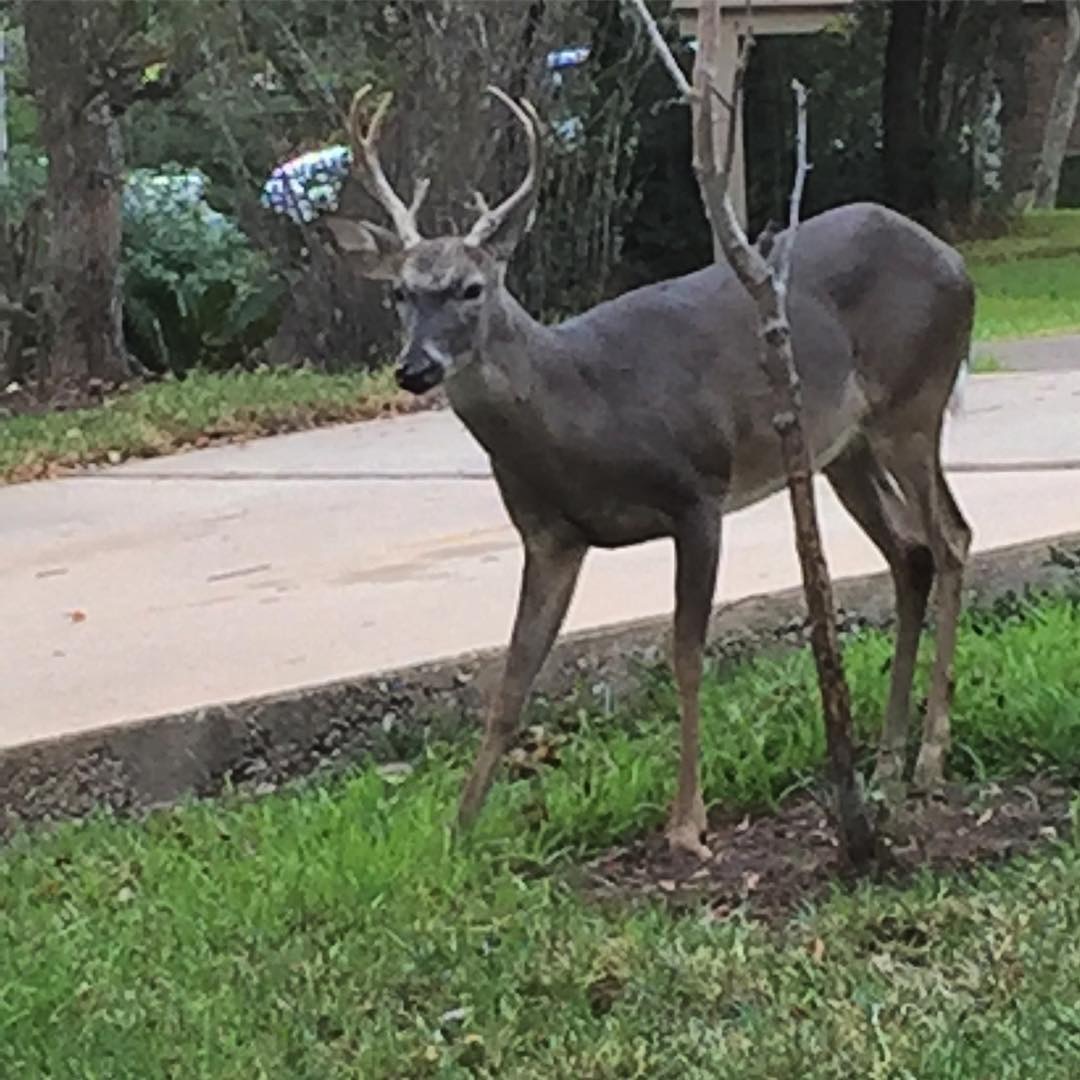
#nofilter #roadpic of #clouds, yeah yeah, next

literally screaming

full moon

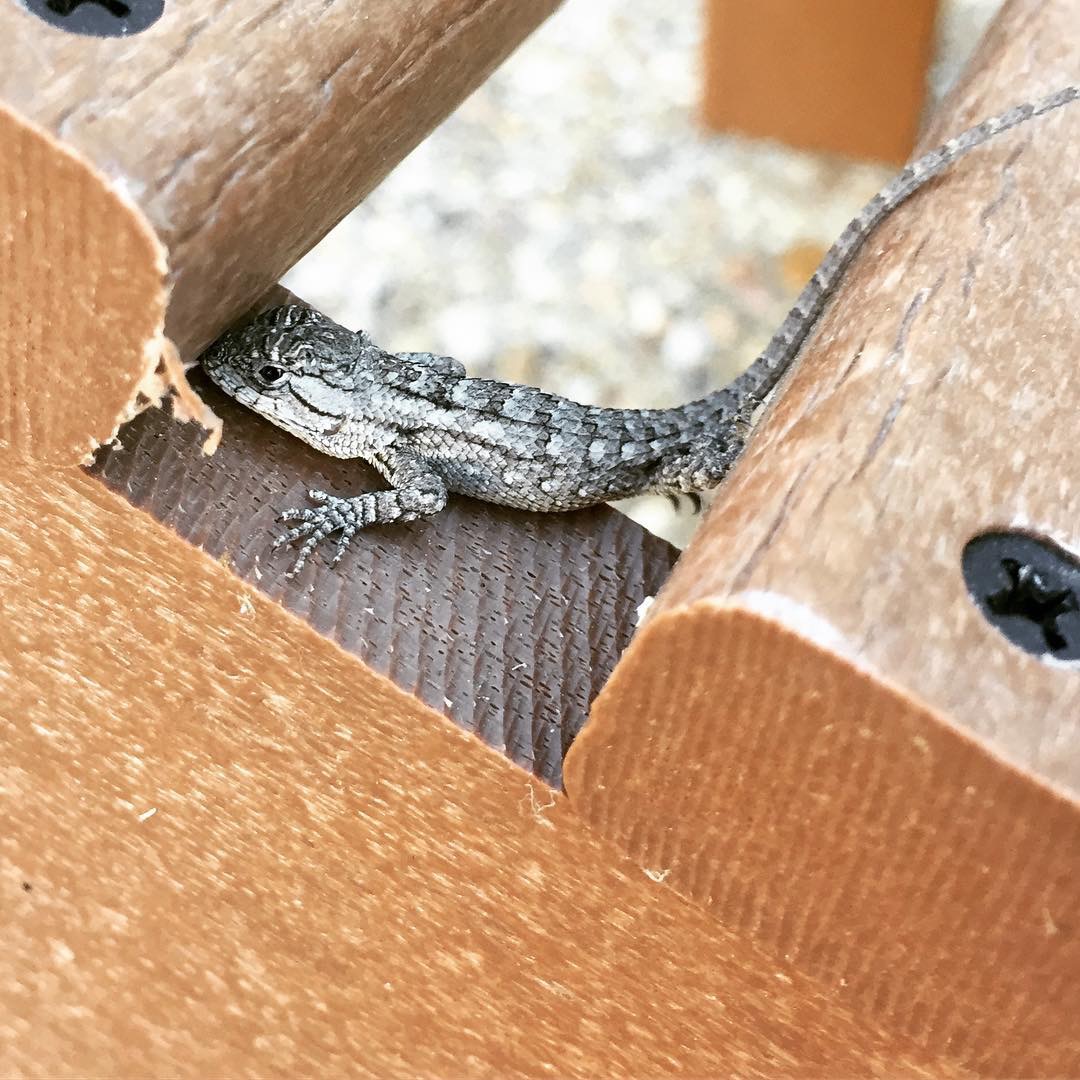
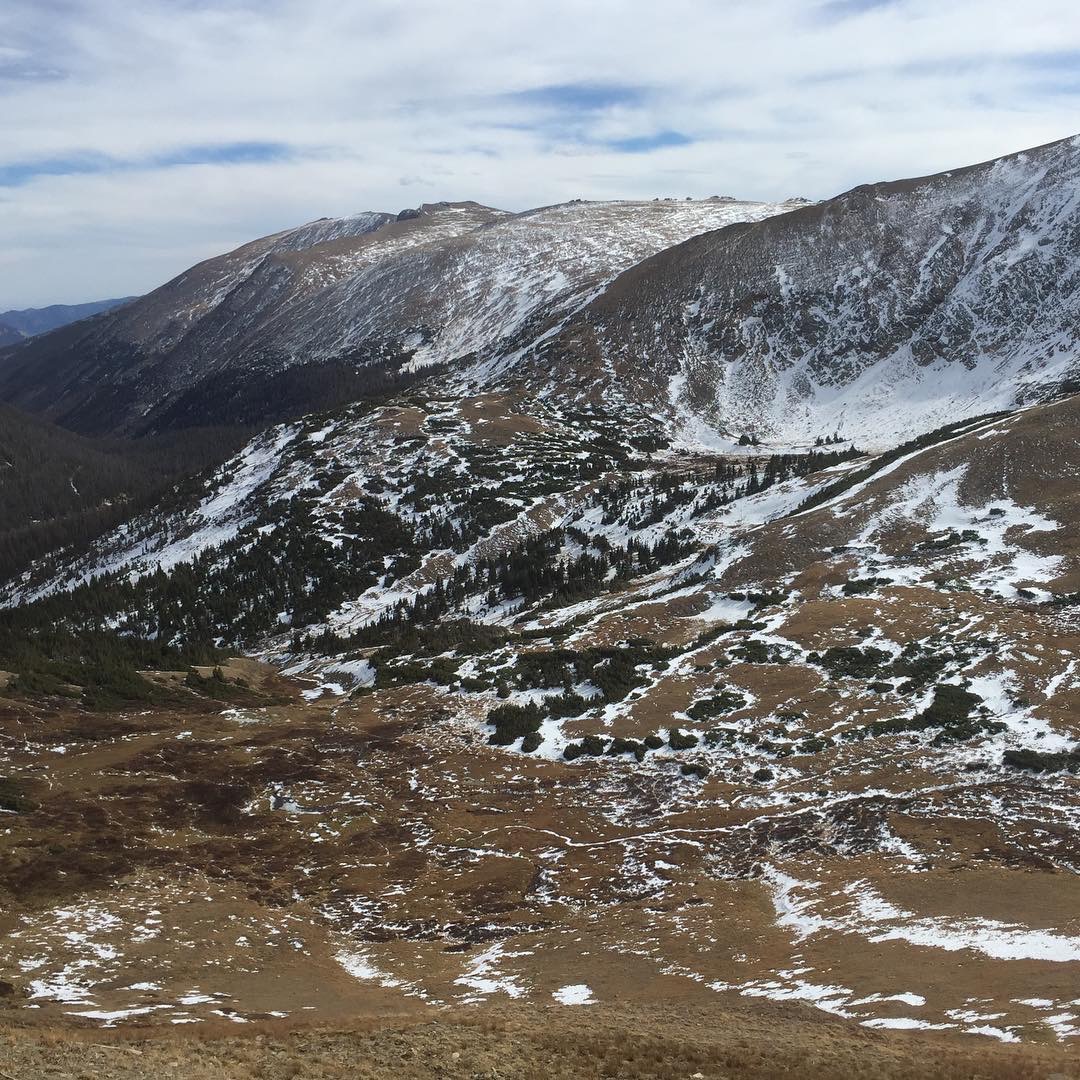
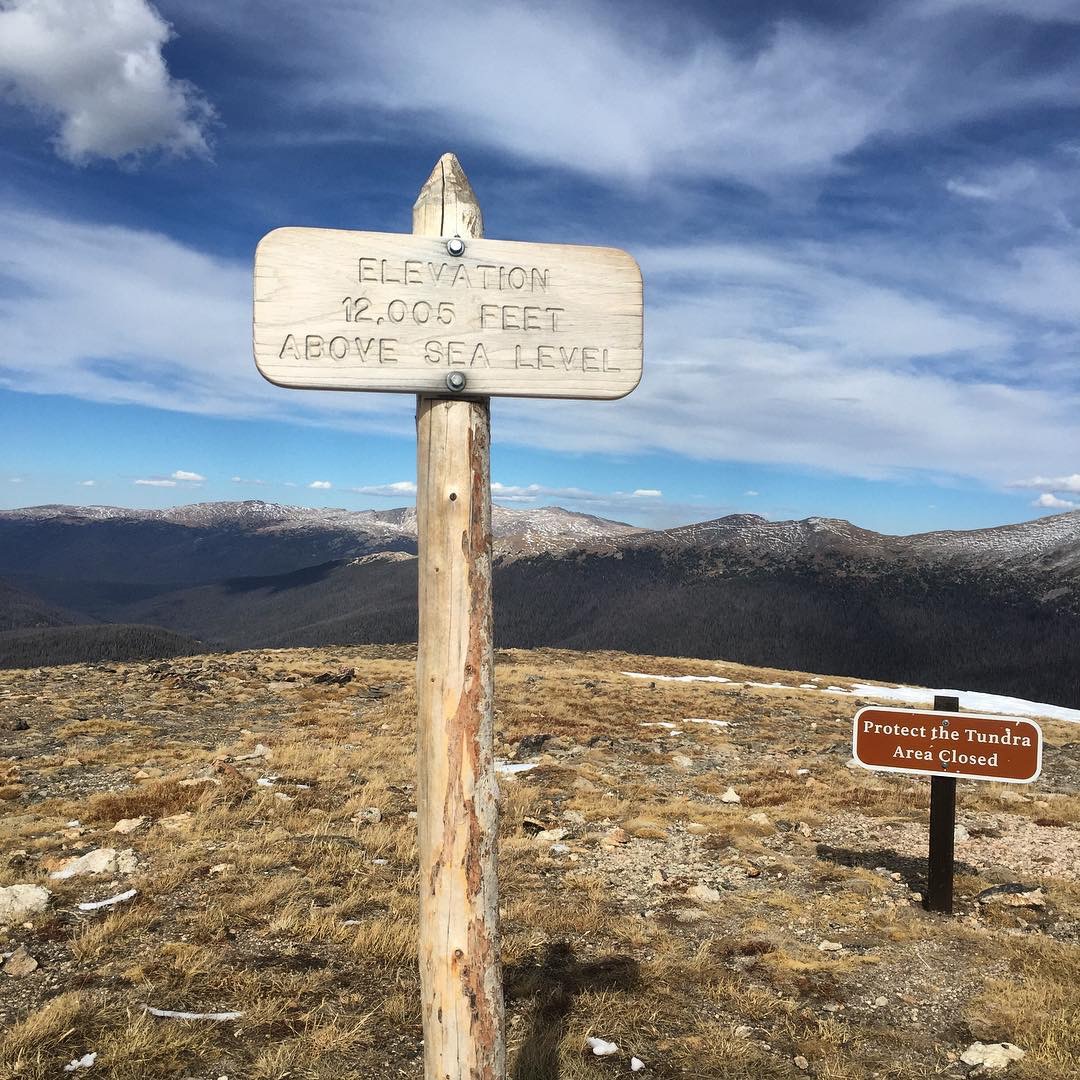
they never did let this poor bear in to the beer festival

Powered by WordPress & Theme by Anders Norén